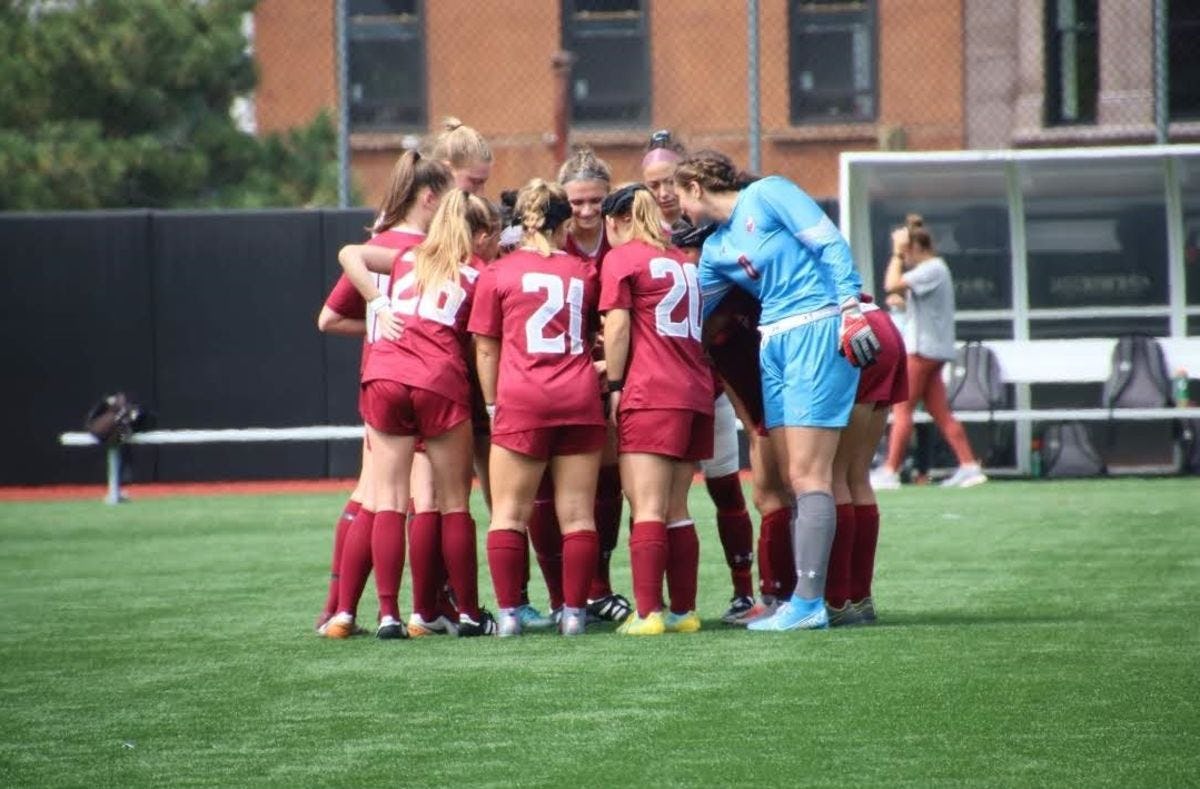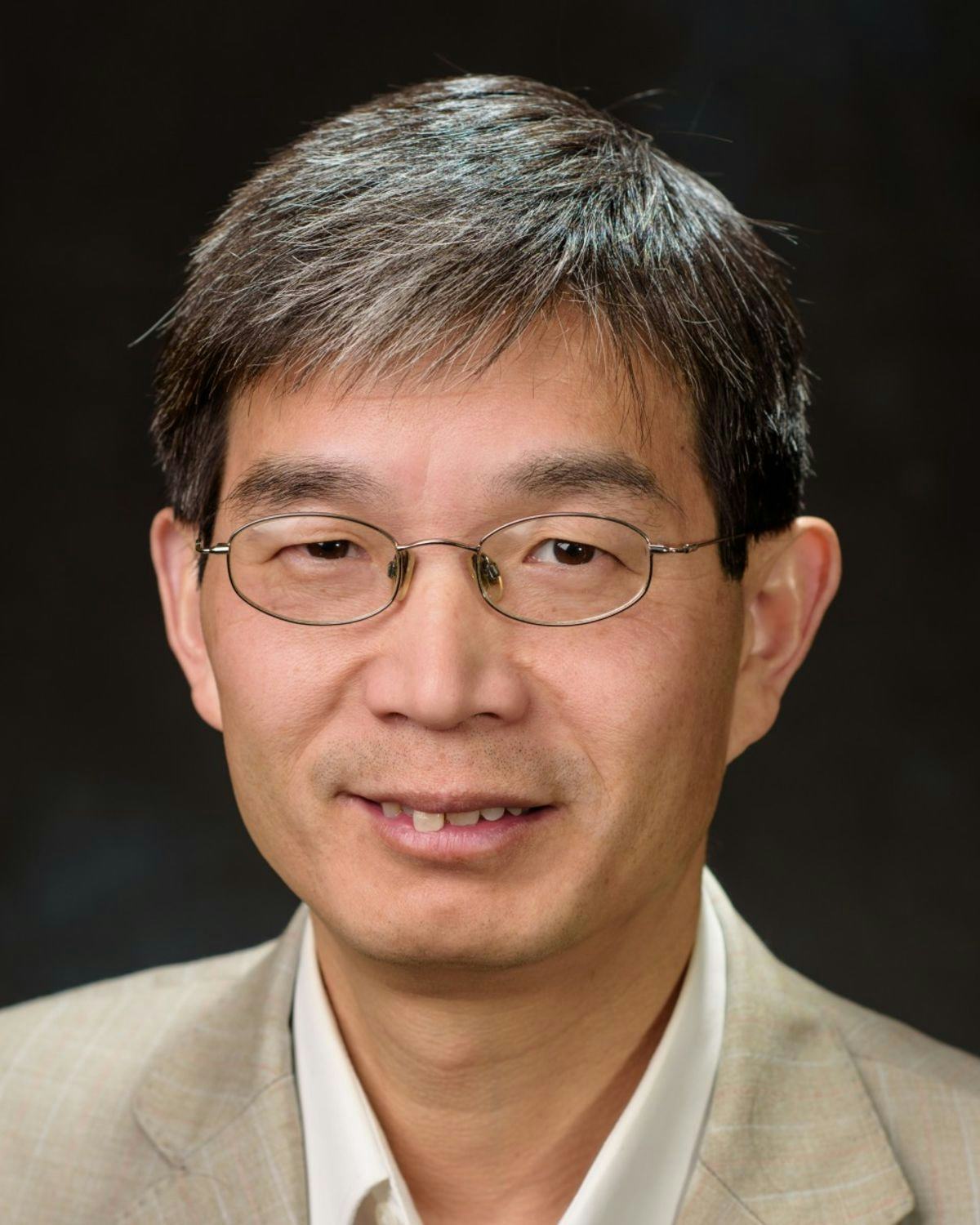When Diligence Meets Passion: Decorated Class of 2021 CCB Student Accepted to Prestigious Ph.D. Program
American Chemical Society honoree Erika McCarthy heads to Rutgers this fall
Being accepted to a prestigious Ph.D. program as an undergraduate is an achievement many aspiring graduate school students dream of, but doing so while achieving national honors and participating in varsity athletics? That’s more than noteworthy – it’s exceptional. Erika McCarthy’s ’21 Stevens career was one filled with research accolades and academic success, alongside 4 years of varsity athletics. And her experience as an undergraduate in the Department of Chemistry and Chemical Biology (CCB) propelled her directly into a Ph.D. program at Rutgers, where she has already started working as a research fellow.
During her time at Stevens, McCarthy received two national-level honors from the American Chemical Society, for physical and inorganic chemistry, and was recognized with the Academic Excellence in Chemistry Award from Stevens’ CCB department. In addition to her awards, she earned many research-related scholarships, having been a Center for Healthcare Innovation Scholar, a Rutgers RISE Scholar, and twice a Novartis Scholar.
“My mom was a middle-school science teacher, and my dad was a Ph.D. chemist. Just having a teacher as a parent — having that mindset at home of wanting to learn a lot — helped me understand that I wanted to do sciences,” she said.
McCarthy began her undergraduate career as a chemical biology major but found the modeling and mathematical parts of her courses most interesting, causing her to pivot to a chemistry major with a math minor. With that particular combination of courses, she essentially created her own concentration and dove into what is now her passion and field of expertise: computational chemistry.
“Chemistry is basically all math at the end of the day; you can break it down,” said McCarthy. “That wasn’t why I wanted to study chemistry, but now that I’ve found that, that’s what’s really interested me — just the beauty of the math and the physics behind it.”
The problems of chemistry — creating effective drugs, identifying the sources of viruses and diseases, developing useful chemical compounds, and so forth — require extensive trial and error and many iterations of physical experiments. Computational chemistry helps improve and expedite that process through modeling and data capturing.
“The faster you can get these models, the less work you’re making for experimental groups that are actually using chemicals and potentially wasting money because they don’t quite know what they’re going for,” said McCarthy. The greatest uses for computational chemistry are “speeding up drug discovery and studying systems that we have a hard time studying experimentally,” she said.
With computational modeling, each variant of a drug under development can be simulated and its efficacy forecasted. From there, chemists can narrow the prospects down to a few of the most promising, without having to physically create and experiment with each one. The same approach allows chemists to visualize chemical processes through time, instead of only getting snapshots of the process as they would in a normal experimental trial.
After finishing her senior research project a year early, for which she employed computational methods to aid in the process of drug discovery under her supervisor Dr. Yong Zhang, there was more that McCarthy wanted to explore. To fund additional research, she applied for and was awarded a scholarship from the Center for Healthcare Innovation (CHI).
“That gave me an extra year to expand on my project because it wasn’t something I could finish within one year. I’ve been continuing to work on it to bring it to a place where I can first-author a paper,” McCarthy said of the CHI scholarship. With the guidance of Dr. Zhang, she plans to complete the manuscript for her paper this summer.
McCarthy’s extensive research experience in computational chemistry through the Zhang Lab at Stevens has afforded her many opportunities. Last summer, she worked at a protein data bank with RISE at Rutgers. During that internship, she modeled the mutations of proteins related to COVID-19 to combat the then new pandemic and co-authored a paper on the group’s findings. It was there that she learned of the biomolecular simulation lab at Rutgers and met the professor with whom she would soon be working as a Ph.D. research fellow.
A Rare Scientific Spirit
As is evident from her success in the lab, McCarthy is uniquely driven to understand complex systems, and Stevens has proven to be the right environment for her to identify and develop her interests.
It takes special skills to break those systems down into logical parts, and it’s rare to have a passion for it.
McCarthy has both the skills and the passion, and neither goes unnoticed.
“She works like a PhD student with a high level of understanding of her project, and she can independently analyze lots of data and provide important information for the design of subsequent work,” said McCarthy’s research advisor, Dr. Zhang. “In fact, she is the only student working on an independent project for my NIH grant and has produced useful data and figures for my successful grant proposal. This is rare because most undergraduate students work with other students and are usually guided by PhD-level students.”
As someone who has redefined the role of an undergrad in the research lab, McCarthy has been a leader in the CCB department. “Her wonderful work in the lab and classes clearly established her as a role model for fellow students,” said Dr. Zhang.
Parallels in Practice
Perhaps some of McCarthy’s academic success is due to the habits she’s developed through athletics. McCarthy was a member of the Stevens Women’s Soccer team and notes connections between how she approaches the field and the lab. In both, she says, you are “setting yourself a goal and working toward it incrementally.”
Whether that goal is improving her soccer skills or answering a challenging research question, McCarthy recognizes that the road to success is gradual and paved with effort.
“Erika does her best regardless of the venue or challenge in front of her,” said women’s soccer coach Jeff Parker. “She is someone that reveals her strength of character because of her consistency of preparation and effort. It is a skill that helped her grow as both a person and a student-athlete that we were all privileged to witness.”
While she received encouragement and guidance from her professors, peers, teammates, and coaches, McCarthy is her own best teacher. She stresses that failure is a natural and essential part of growth: “You’re going to fail a lot, and it’s not even bad because you’re learning something each time.”
As an onlooker, it’s hard to spot failure in McCarthy’s body of work, but that’s only because of how well she responds to and integrates failure. “The way in which you failed is actually really important because you can see what caused you to fail, and that gives you information for how you should set up your next trail,” she said. “That’s a mindset that’s good to learn early if you’re going to do research, because you can get really discouraged.”
Armed with such a powerful mindset and equipped with her knowledge and research experience from Stevens, McCarthy is poised for success this fall in her Ph.D. program at Rutgers.




